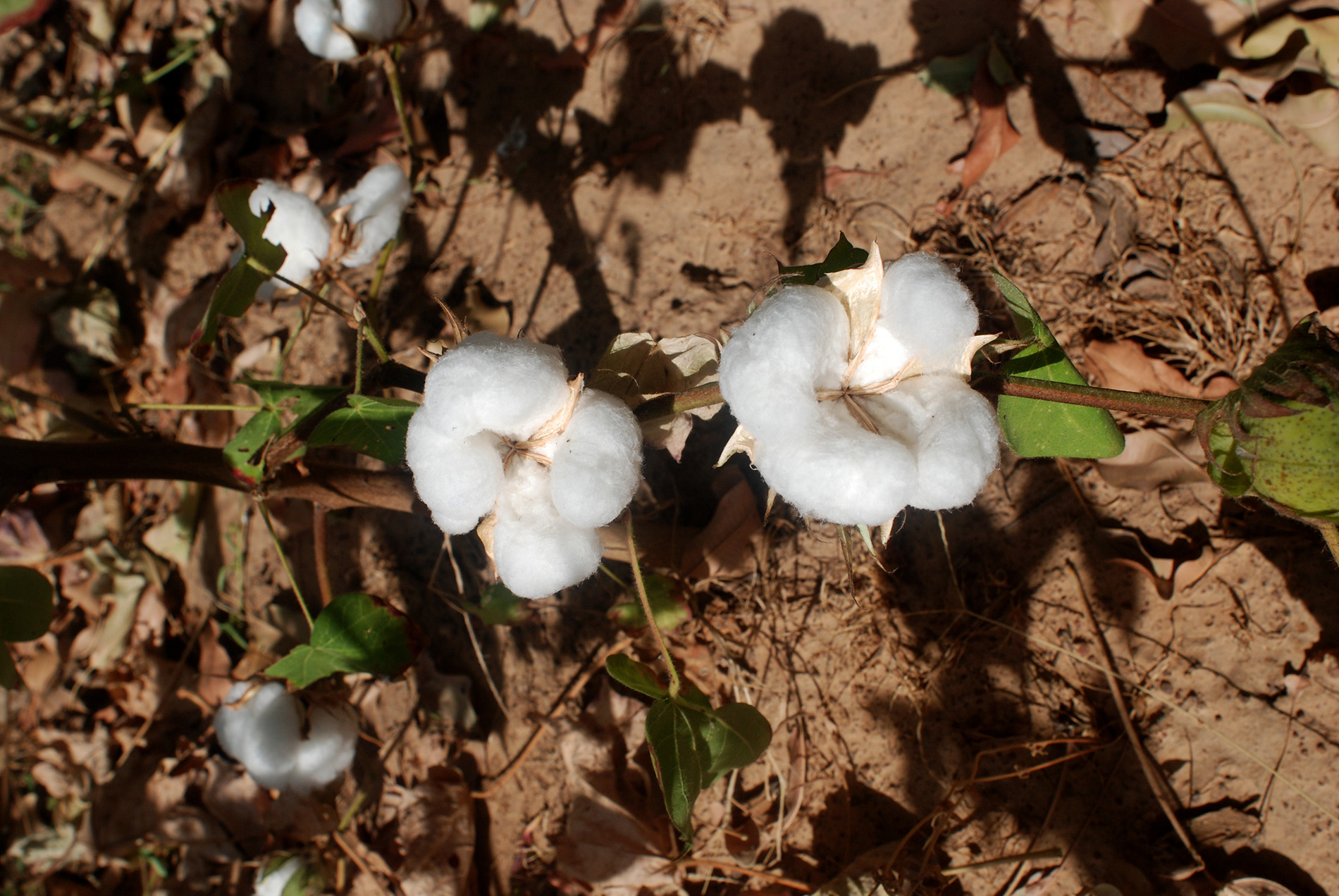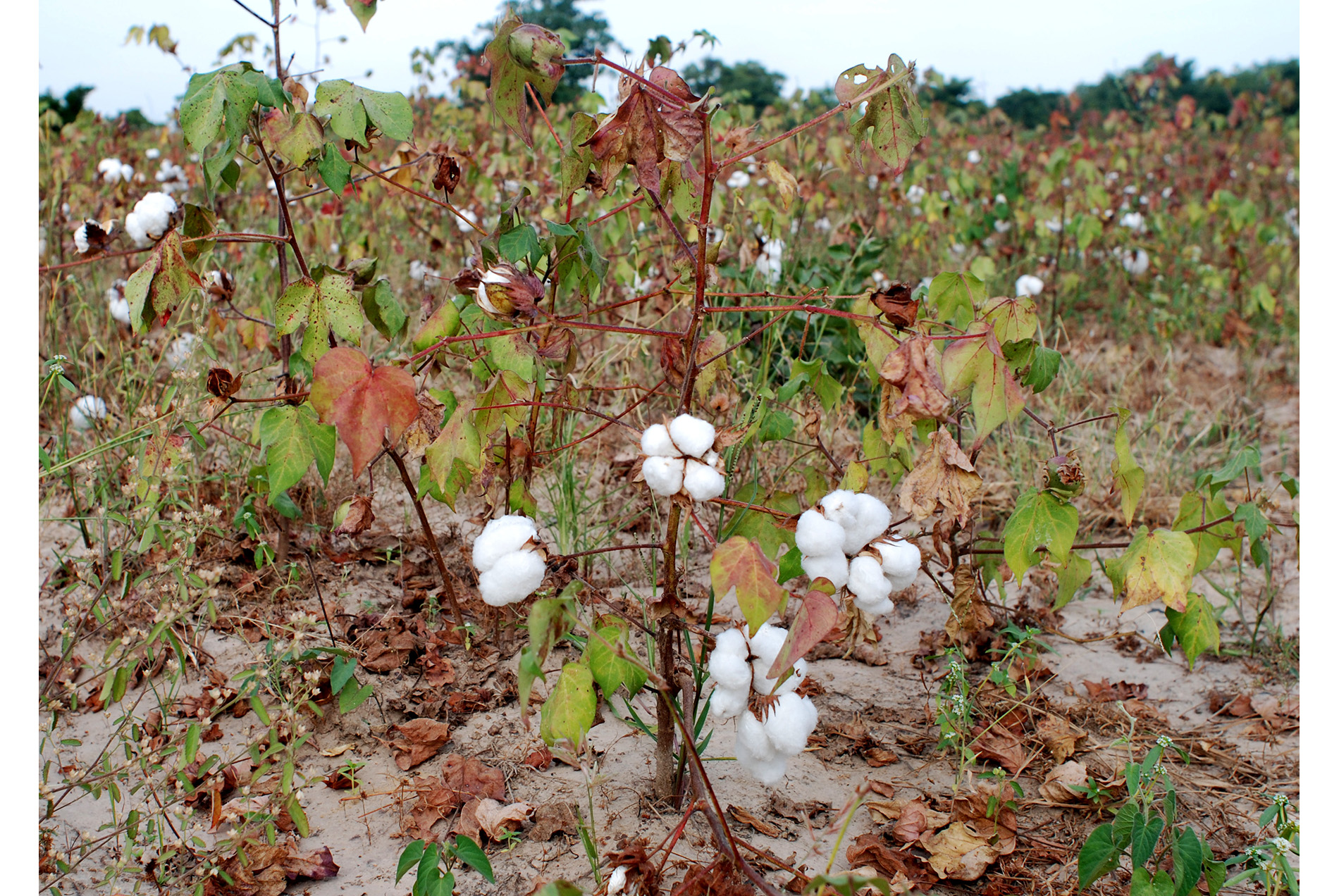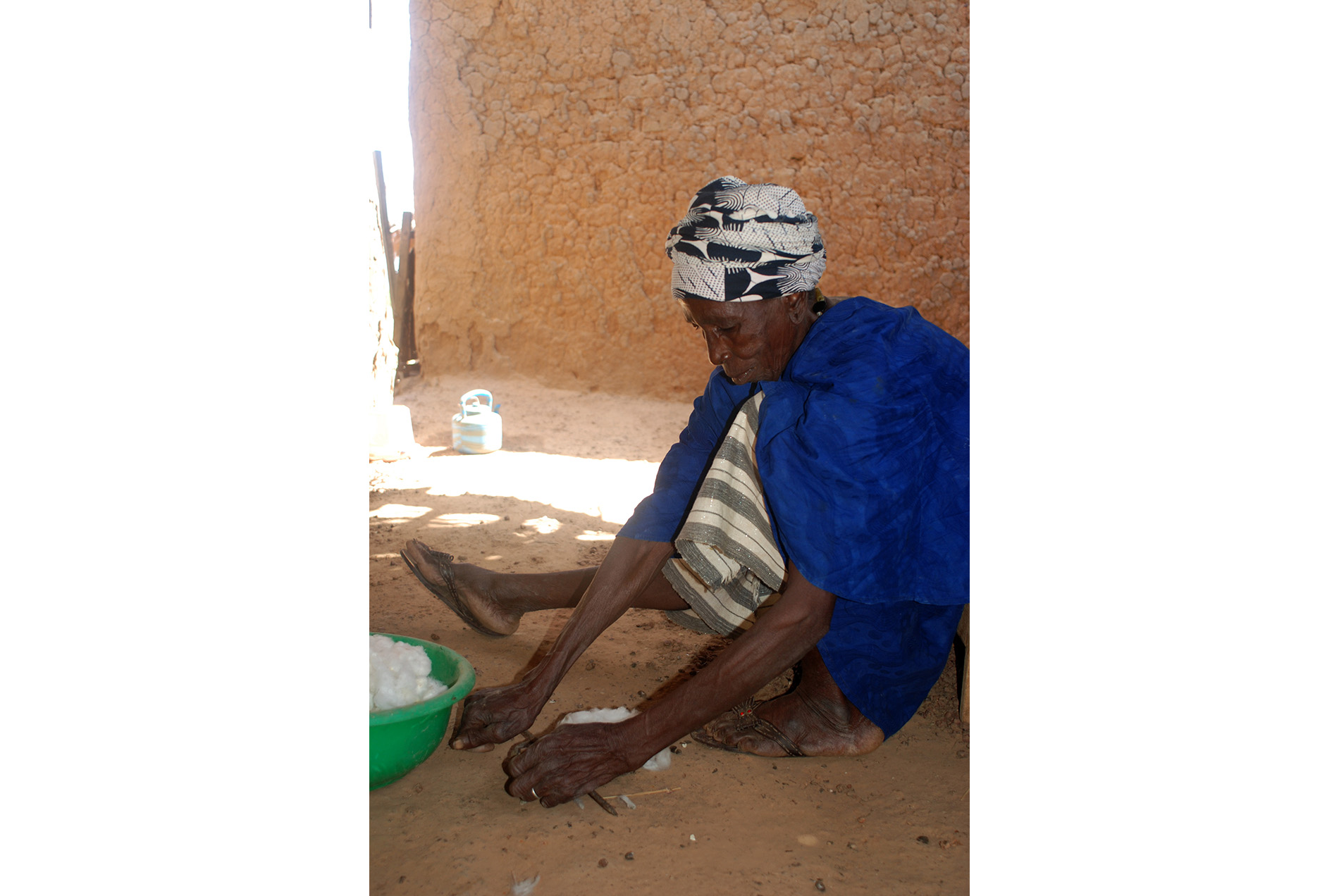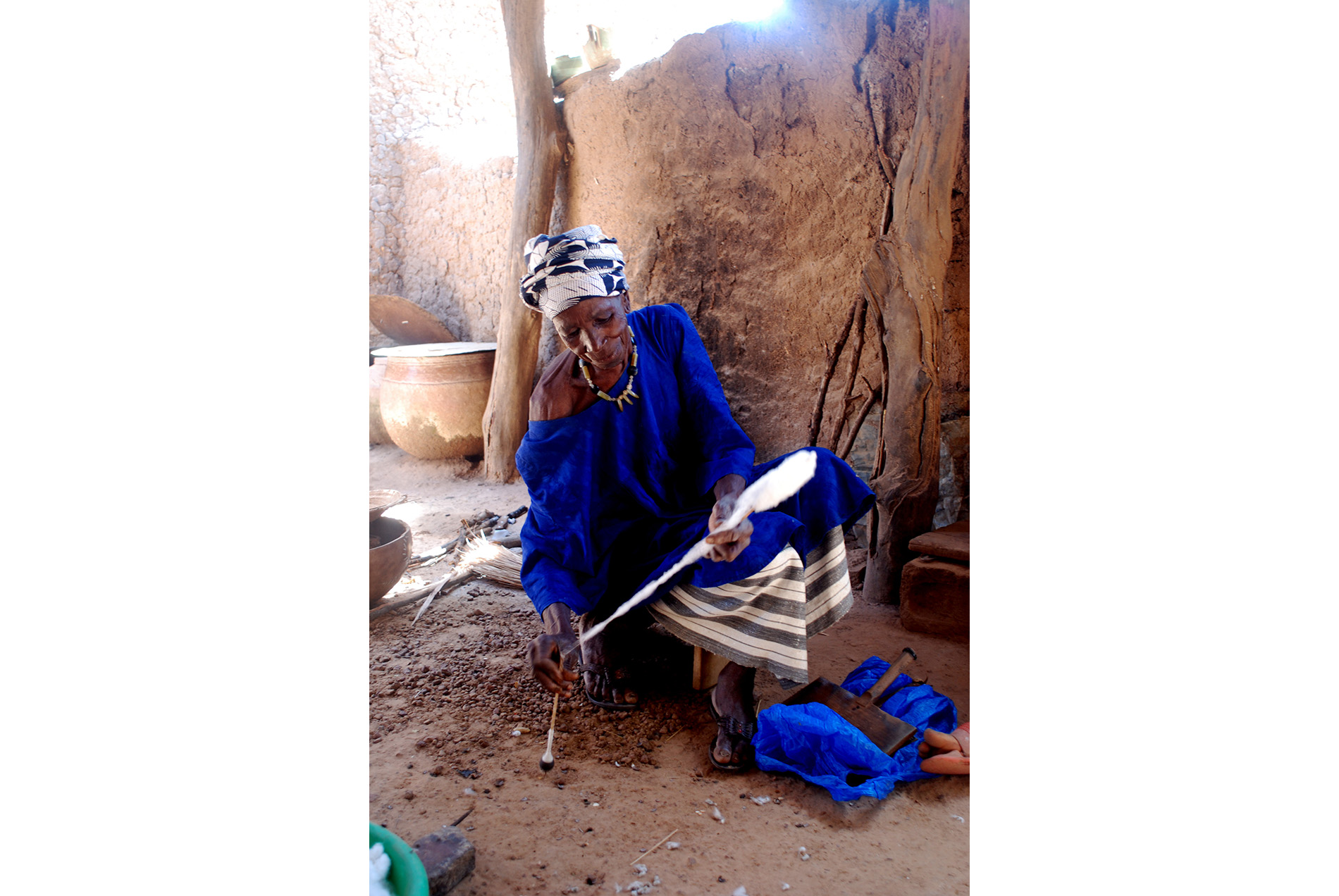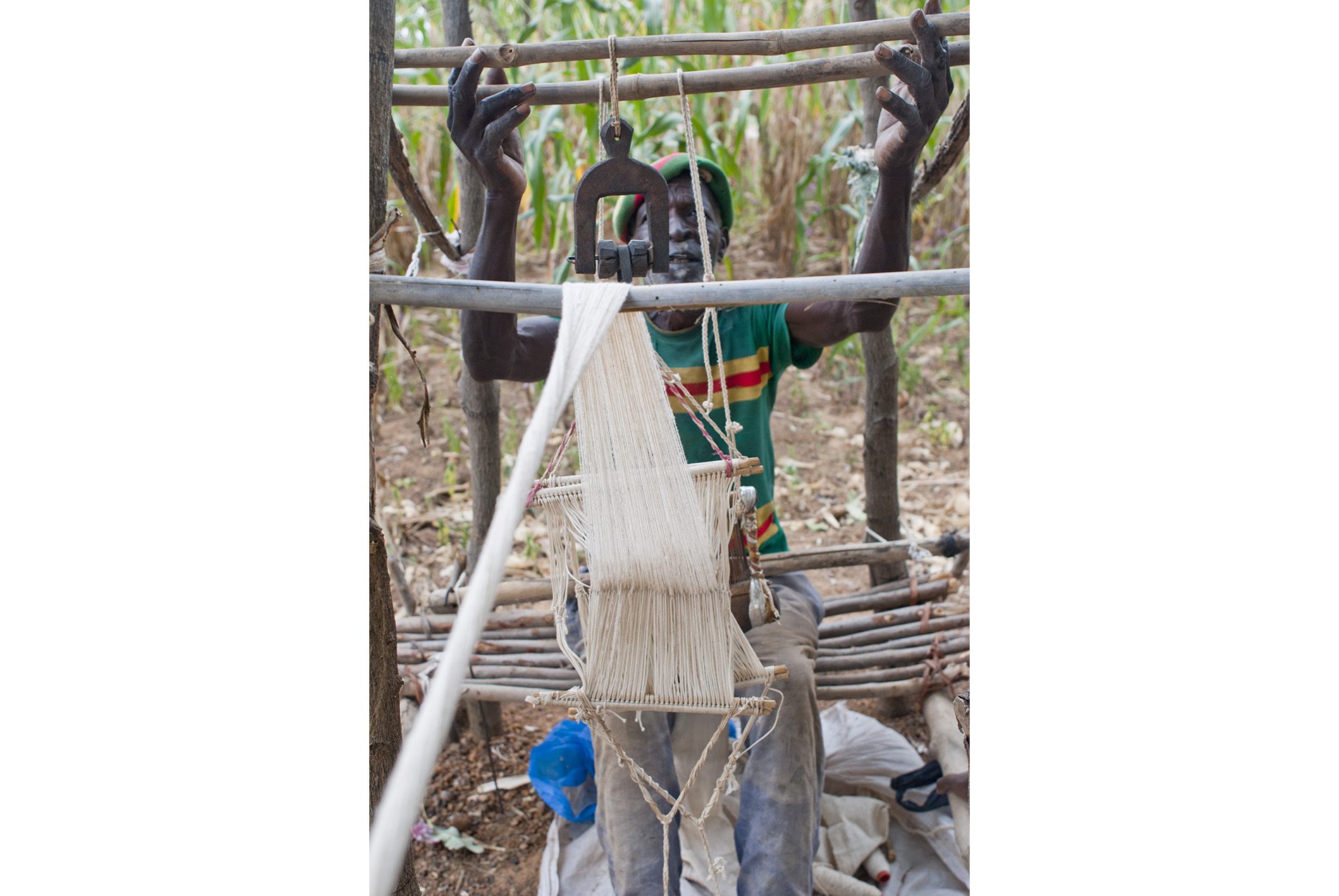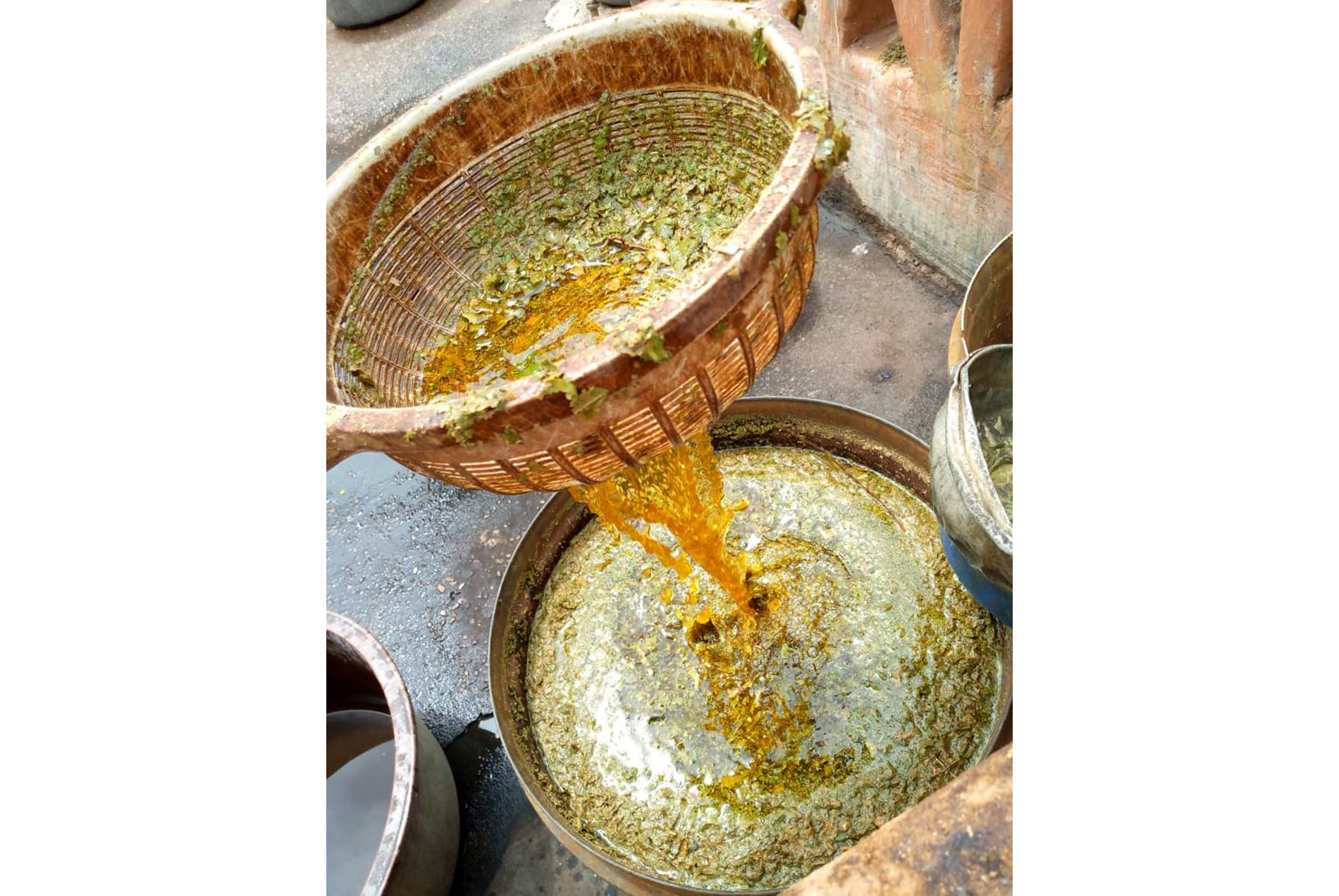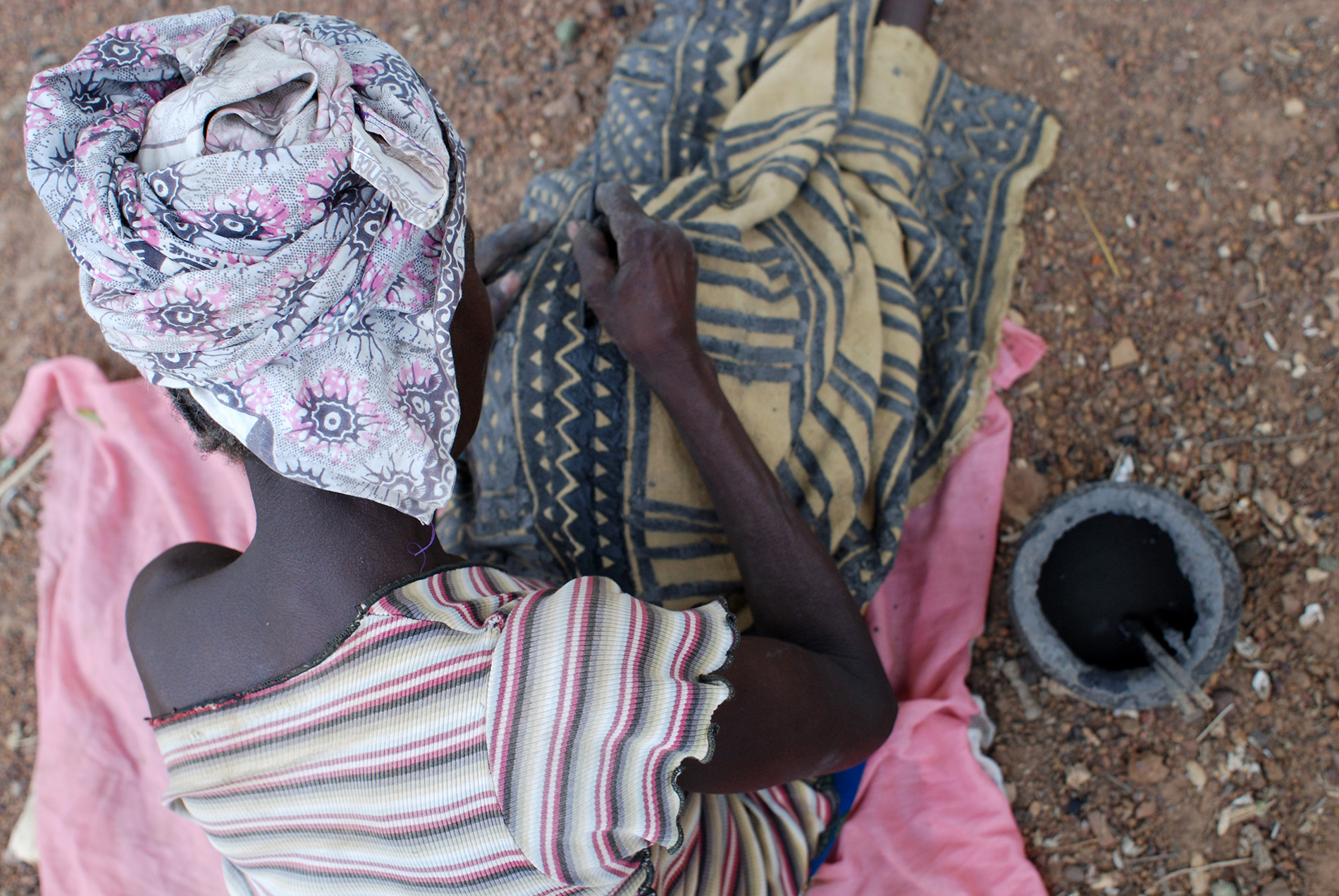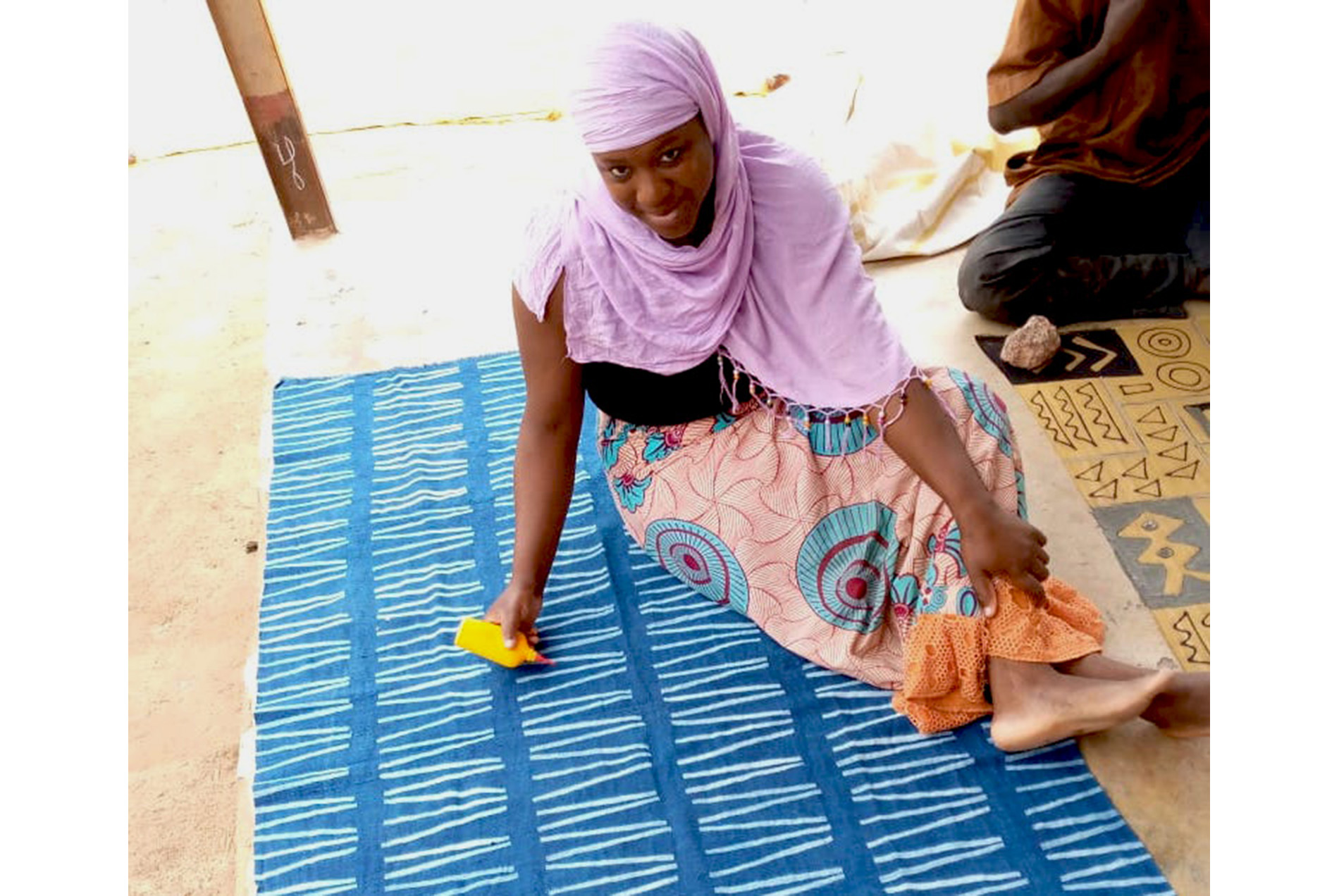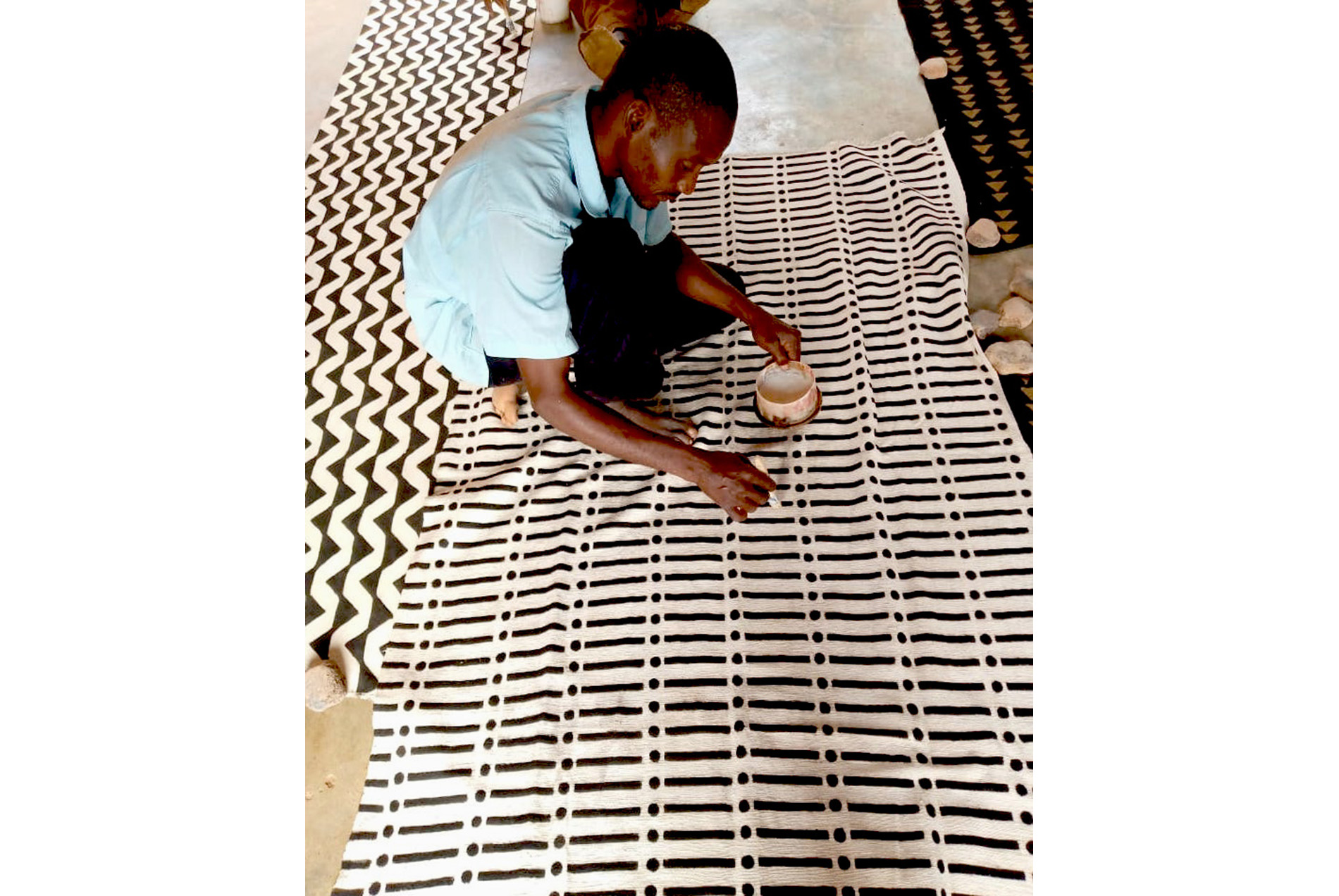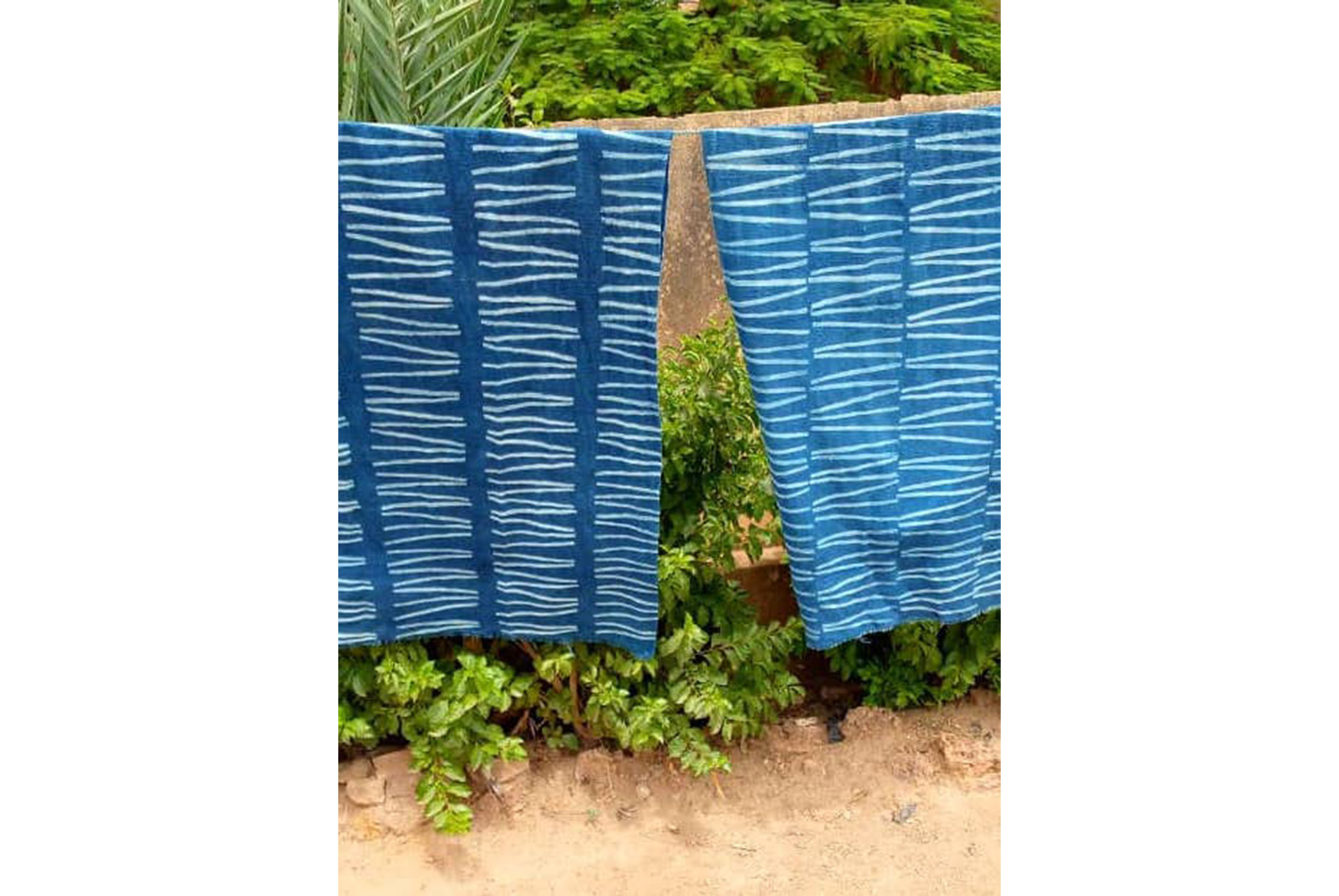KOORI TEXTILE SCHOOL
Mali
Main objectives:
- Promote and safeguard the textile culture of Mali, tied to the creation of the “Bogolan” textile.
- Set up an artisanal textile and natural dyeing workshop in the Koulikoro region, which will hold courses for the youth of the local community.
- Support textile artisans who work in the territory and promote their access to European markets.
In line with its mission of promoting craftsmanship as a means for social integration, particularly concerning people coming from low‑income countries, in 2019 Terìa started the project KOORI – School of Weaving and Natural Dyeing in Mali.
The project is being developed in 3 villages in the municipality of Doumba, about 130 km north east of the capital Bamako, and consists of the safeguarding and promotion of techniques of spinning, weaving and dyeing of cotton used in the creation of the traditional Malian cloth, Bogolan. The main goal is to establish a cooperative of cotton growers, weavers and dyers, in which production and training go hand in hand, following the practical method of apprenticeship, which is deeply rooted in the local culture. In addition to the project of the School of Weaving and Natural Dyeing, Terìa has established contacts with artisans who are already dedicated to the production of Bogolan in the territory, specifically with the Ndomo center, located in Segou, in the north of the country, with which it has started a partnership aimed at promoting Malian textile culture, and helping local workers gain access to the Fair Trade market circuit.
The project’s mission is to safeguard and promote techniques of artisanal transformation of cotton, carried out in Mali for thousands of years, which is now disappearing because of the spread of cheap, industrially printed cloth, arriving mainly from the Asian market.
Recent political instability, climate change and the global pandemic, combined in 2020 with a drastic reduction of cotton production, and the forecast for 2021-2022 is even worse.
According to a report of the CMDT (Compagnie Malienne pour le Développement des Textiles), the production of cotton decreased by 30% from 2019 to 2020, while in 2020 in the south of the country less than 50% was registered as farmland, compared with the previous year. The lowering of the price of cotton and the cost of chemical fertilizers has made it very difficult for farmers to make any profits from the harvest.
Activities connected to the manufacturing of cotton, which were already very limited, have also declined. In 2017-2018 Mali was the prime exporter of cotton of the entire African continent, but only 2% of the production was transformed locally. This gives an idea of how little the resource of “white gold” is exploited in the country. The textile industry has never really got off the ground, and today even the craftsmanship, which has a history and rich tradition in Mali, is experiencing a profound crisis. In the villages, the spinners, the weavers and the decorators of the cotton are abandoning their craft. The habit of commissioning a “Bogolanfini” for festive occasions or ceremonies is disappearing, because of the spread of cheap printed cottons arriving mainly from the Asian markets.
The crisis of the textile sector in Mali is complex, and there are multiple reasons for it. However, the intention of the Koori project is to transform the apparently weak points of the agricultural and textile sectors into concrete and stable strengths.
Terìa works in Italy, and also generally in Europe, where the fashion sector is also going through a profound crisis linked to poor sustainability in fashion from two points of view: environmental and social. Fashion has, in fact, proved to be the most polluting industry on the planet after the oil industry, and it has been hit by numerous serious scandals regarding work ethics.
Stakeholders in the textile sector, from the smallest to the largest, find themselves having to respond to an increasing demand for certified prime materials, preferably organic and for ethical and sustainable production processes.
We are convinced that sustainable production processes that are able to preserve the relationship between man and the surrounding environment, practices that are now called “circular economy”, coincide with what people have always practised as craftmanship, the safeguarding and promotion of which is Terìa’s mission.
The Koori project has been developed in three overlapping areas:
- Conversion of 3 hectares of land into organic cotton farming, with a forecast of a yearly harvest of about 10 tonnes,
- Setting up of a workshop, equipped with artisanal machinery, for carding, spinning, weaving and dyeing of cotton in the village of Dibaro.
- Training benefits for young apprentices who assist and support artisans in the transformation phases of cotton, in order to keep thousand-year old traditions alive.
The start of the project was slowed down because of complications, due to the pandemic in 2020, but to this date Terìa has transformed 300 kg of the cotton picked by the farmers, and has funded the creation of the first bogolan fabrics made by the Koori Textile School. The Coloriage Cooperative has bought these fabrics, together with a large quantity of bogolan from the Ndomo center, and is currently designing a specific collection for the production of a “Koori” line.
In this first phase of the project, Terìa has been involved in the Koori Textile School – as well as a family of farmers – a spinner, a weaver and a dyer: three artisans whose trade was interrupted five years ago by the crisis in the textile sector. Terìa has also involved three apprentices who assist the artisans in working the cotton, and in learning the traditional techniques of spinning, weaving and decorating. In addition, 8 of the artisans of the Ndomo center have worked with the production of Koori fabric.
